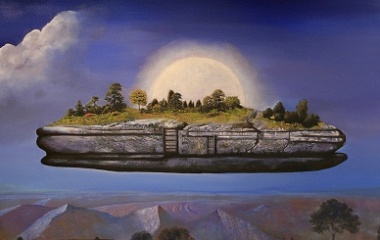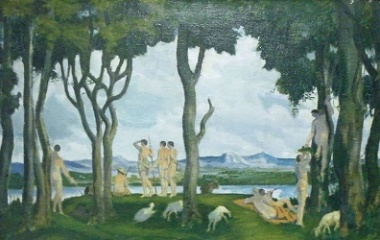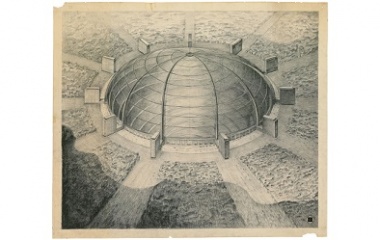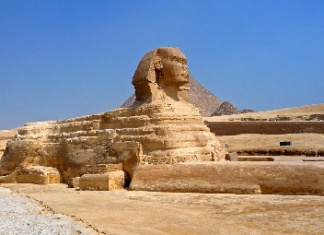Would you feel better about life if there were no wars, no disease, no financial strife, and you had ample free time to play sport, create art or unwind on an idyllic sandy beach?
What Is Utopia?
Utopia is an ideal place, a paradise where people live in harmony with nature. It is often viewed as a model society, with an abundance of everything people need to survive and live long, happy lives. The term was conceived by author and philosopher Thomas More from the Greek ou topos, meaning no place or, essentially, nowhere.
Utopia in Literature
Though the term was coined by More in his book Utopia, published in 1516, the concept has existed in literature since as early as the 4th century BC, in the works of a Greek mythographer, Euhemerus. With the Age of Exploration sending explorers and writers further into mysterious foreign lands, the settings for utopian themes became more realistic. In his novel, More criticizes the European way of life through his portrayal of an ideal society. The setting for More’s utopia was on an island, where there are no laws, everyone learns a skill which benefits the community, people work for only six hours a day, no crime exists and there is a tolerance for religion in all forms.
More’s work influenced many writers to follow in the utopian, as well as dystopian, genres. In 1552, author Antonio Francesco Doni published I Mondi, while Francesco Patrizi published La Città felice in 1553. Both works reflected More’s model society view. Francis Bacon published his book New Atlantis in 1627, approaching the concept of utopia with a realistic look at science and a more abstract view on religion and philosophy. In 1888, a utopian book was published which viewed the concept from an economic viewpoint, called Looking Backward, 2000–1887. The author, Edward Bellamy, transports his protagonist from a war-ravaged 19th century to a serene, utopian 21st century. The well-known science fiction story is said to have influenced the Marxist movement and the intellectual community at the time. Bellamy was unhappy about the injustice in the socio-economic system and, like other utopian writers, put forth a concept of an ideal world.
George Orwell’s Nineteen Eighty-four, published in 1949, conveys the dystopian rather than utopian commentary prevalent in the time period, with the devastation of WWII barely forgotten. The novel describes a horrific totalitarian state, where society is certainly far from ideal.
Types of Utopian Societies
The Golden Age in Greek mythology was perhaps the earliest look at a utopian society. Hesiod, a Greek poet, believed there were four stages of existence prior to his day, the oldest one being the Golden Age. There was prosperity and peace during this time and no shortage of food. People were happy and lived in harmony. Society has postulated many types of ideal societies, often swayed by the blight of the time.
In Religion
The concept of utopia is perhaps synonymous with a Garden of Eden, afterlife paradise or enlightened state of mind like Shambhala, Nirvana or the Elysian Fields in the prominent world religions. Smaller religious groups have been established that wished to simulate a utopian society, or in their view, a resemblance of the afterlife. In the early 1800s especially, many people wished to live in a society governed purely by religion. The Shakers were an example of such a group. They believed in equality of the sexes, celibacy and pacifism, and had a particularly frenetic worship style. The Amana Colonies were another utopian community established in the 18-19th century. They lived a communal life, shared property and discouraged marriage and child bearing. They held worship sessions 11 times a week, and didn’t believe in singing hymns or the incorporation of any music. The Oneida Community was a religious commune founded in 1848 by John Humphrey Noyes. The utopian society believed in complex marriages, meaning that all husbands and wives were collective property! Another curious custom practiced by the group was criticism sessions, which were presided over by committees and used to shame any wrongdoers in the community.
In Politics and Economics
A political utopia would encourage the needs of the government at the expense of individualism. The American founders were said to be influenced by the concept of a utopian society through the works of English philosopher, James Harrington. Three colonies established originally by Great Britain in the 16-1700s – Georgia, Pennsylvania and Carolina – were based on the principle of socio-economic utopianism. Socialism and an economic utopia were frequently viewed as synonymous in the beginning of the 19th century, according to scholars. In this vision of an ideal society, the system of money would be done away with and citizens would have time to enjoy leisure activities of their choice in their abundant spare time.
In Technology
In speculative and science fiction, the utopian state is set in the near or distant future. With the improvement in science and technology, as well as medicine, the lifespan of human beings increases. In technological or science fiction utopias, the concept of the human body living forever is even postulated. Other bodily functions are purportedly replaced by technology, like organs, human reproduction and food intake. Techno-utopianism is the concept of the natural progression of science and technology to a utopian state. Many of the claims by the theory’s proponents are contestable, however, such as technology bringing out the best in people, improving interpersonal communication and relationships, and increasing human efficiency.
In Feminism
Utopia has been envisioned from a feminist point of view, too. In the 1970s, the concept of separate societies was prevalent with radical feminists, to the degree that certain groups encouraged women to move out to farms and live a celibate or lesbian lifestyle! Science fiction writers have postulated single sex planets, the replacement of conventional child birth with an artificial system, and gender equality in all roles.
The concept of an ideal society has changed drastically since Thomas More’s time. Whether a utopia or dystopia, our postulates of the future are often ruled by our present outlook on the world and our own happiness level. Since sites like Goodreads currently list 255 novels under the utopia genre, and 8333 under dystopia, is that a reflection on our gloomy view of the future or just a morbid fascination with a pessimistic viewpoint?










